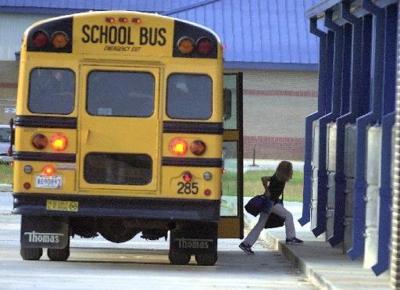The St. Tammany Parish School Board’s recent refusal to adopt the collective bargaining agreement hammered out by school district officials and its employees union leaves a question that even the board’s president can’t immediately answer.
What happens now?
“That’s a really good question,” Board President James Braud said Wednesday.
The board on Monday night did approve the salary increases in the proposed agreement between the school district and the St. Tammany Federation of Teachers and School Employees. But in a 9-4 vote it rejected the rest of the agreement, a 91-page document covering salaries and myriad other policy issues for the school district’s nearly 6,000 employees.
Instead, the board directed schools Superintendent Frank Jabbia and his team to develop an employee handbook, using the proposed CBA as a starting point.
"I'm working hard to get something in place," Jabbia said Wednesday.
But, he added, he's never developed an employee handbook or worked under one, so the process is unfamiliar.
Collective bargaining agreements between the board and the employees' union date back decades. The most recent CBA expired in June.
That agreement had largely been negotiated over the past few months by Jabbia and Brant Osborn, president of the St. Tammany Federation of Teachers and School Employees. Before the board’s meeting, Jabbia had spoken highly of it.
Jabbia said he was stunned when the board voted it down. "I've never seen the board not accept it, and I've never seen the union not ratify it," he said.
Osborn did not immediately return phone calls, but posted a “call to action” on the federation’s Facebook page, urging federation members to attend the board’s monthly committee meeting Thursday night and sign up to speak during the public-comment period.
“They were given a clear choice of labor peace or labor unrest,” Osborn’s post reads. “The board made its choice.
"Many speak of work stoppage. Let’s start with showing up to this meeting in large numbers.”
Some employees say the collective bargaining agreement provides them more protection than an emloyee handbook will.
Regarding the handbook, Jabbia said he hopes his team can put a temporary document together by next month, then work with various employee groups on a permanent guide. Some of the items in the CBA will be in the handbook.
"I've never looked at an employee handbook," he said.
The district is also preparing for the start of the new school year in early August.
Braud, the board president, said he and other board members had concerns that the CBA had become the district's de facto employee policy manual in recent years.
“Over the years we’ve been negligent as a board in creating policy,” he said.
Instead, Braud said, that policy has increasingly been negotiated in closed sessions as part of the collective bargaining agreement with the union.
Braud said board members must vote the entire agreement “up or down,” which puts them in a bad position if there are certain components they find troubling. So for him, he said, “it had to be a down vote."
The salary increases the proposed CBA called for were approved, however. The contract added an extra step in the pay plan for employees -- $500 for teachers and $350 for support personnel -- as well as incentives for teachers willing to move into hard-to-staff subject areas such as special education or receive advanced degrees or certifications. The board also approved some longecity pay increases.

